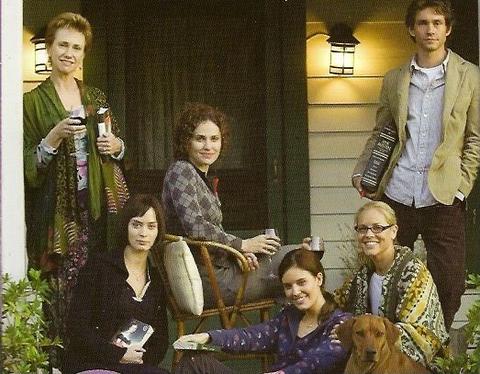
This week, amongst a flurry of tunes, pizza and beer, Luna Outdoor will premier the documentary Joy Division. Riding fresh on the coat tails of Control’s recent success, one can confidently expect a large turn out for this, more rigorous, exploration of the Manchester band’s inspiring start and tumultuous decline – though the two could hardly be considered mutually exclusive. For starters, Joy Division’s director Grant Gee (who has previously worked on documentaries about Radiohead, Gorillaz and Scott Walker) has chosen to look more broadly at the context of the events. Through never-before-seen footage, audiotapes, personal photos and period films, Gee creates a collage that represents not only the band, but also their city and the musical/artistic movement that they belonged to. As the late Tony Wilson states in a voice-over that opens the film, the story of Joy Division is also the story of Manchester, and of a city awakened by their music. Indeed, it’s hard to watch the documentary without feeling drawn into the infectious punk atmosphere of 1980s Manchester, alive with new hope and music.
Strikingly intimate interviews with the surviving members of Joy Division, fellow musicians and musical icons, and even with Anton Corbijn (the director of Control) are slotted into the footage, adding detail and cohesion to the period collage. While many Joy Division ‘anecdotes’ (such as their famous meeting at Manchester Hall, their involvement with Tony Wilson and so on) have been milked dry by the double impact of Control and 24 Hour Party People, it is surprising to learn that these interview subjects still have something fresh to offer. Gee has directed them to speak with great sincerity and insightfulness – one notable example being the way in which the band members and Annike Honore (the Belgian journalist with whom Curtis had an affair) reflect upon how everyone seemed to ignore the darkness of Curtis’s lyrics. Similarly, it’s touching to see the Joy Division story carried beyond Curtis’s death, to look at the musical and cultural legacy that the band left behind them before going on to become New Order.
Rating: 7.1

Every film festival has to reach its nadir, and for PIAF’s Lotterywest Film Festival, it seems that point is Prague, which screens at Sommerville from next week. The latest film from Danish director Ole Christian Madsen (Kira’s Reason – A Love Story, Angels in Fast Motion) is a dark look at both the practical and emotional aspects of grieving, and how the two intermingle. Christoffer (Mads Mikkelson – After the Wedding, Casino Royal) and Maja (Stine Stengade – Kira’s Reason) are a couple of 14 years, whose marriage is tested when they travel to Prague to retrieve the body of Chrostoffer’s dead father. Having not seen his father since he was abandoned by him 25 years ago, Christoffer appears unfazed by the death, but is forced to leave his emotional plateau after Maja confesses to having an affair. Now trapped together in a city they both seem to despise, the couple share their final days amongst increasing levels of tension, while Christoffer simultaneously deals with his father’s lawyer, house-keeper and some ‘unexpected’ revelations.
Unfortunately, the surprises that send Christoffer over the edge are all too easy to spot from a mile away, while the extreme close-ups of a hand held camera (here an ear, there an eye) suggest a level of pretension at odds with the utterly predictable nature of the script. Madsen obviously thought he was creating something deeply moving, but whether it is the trite nature of his dialogue, or some less-than-perfect performances, at least two of the film’s central revelations were enough to send a ripple of groans/giggles through the crowd. While several scenes are genuinely emotional and thoroughly well-acted (particularly where Mikkelson is concerned), they fall flat when viewed in the context of the whole film. In the end, Prague makes a mockery of the deep themes it is presenting, and the emotional story that it is attempting to share.










